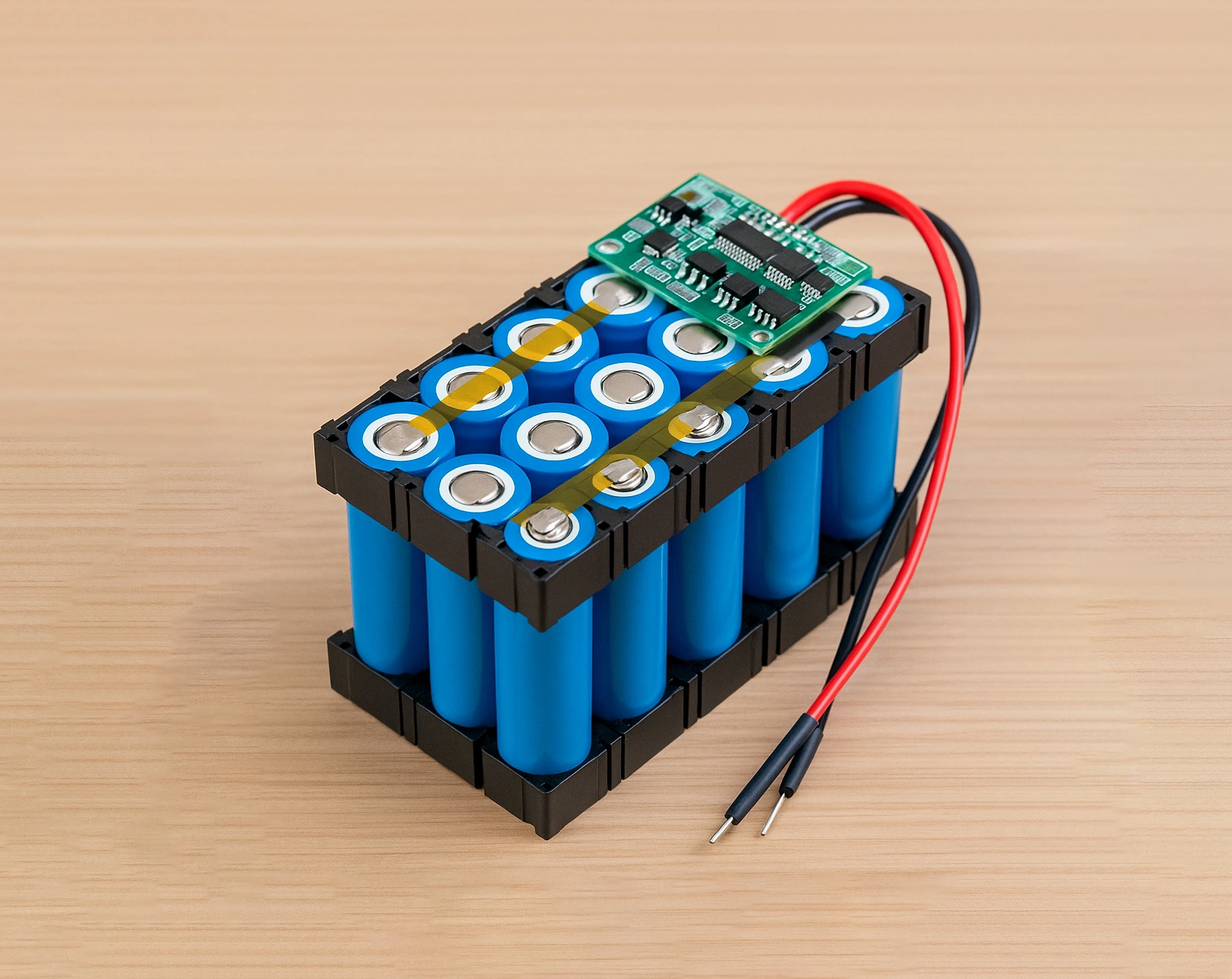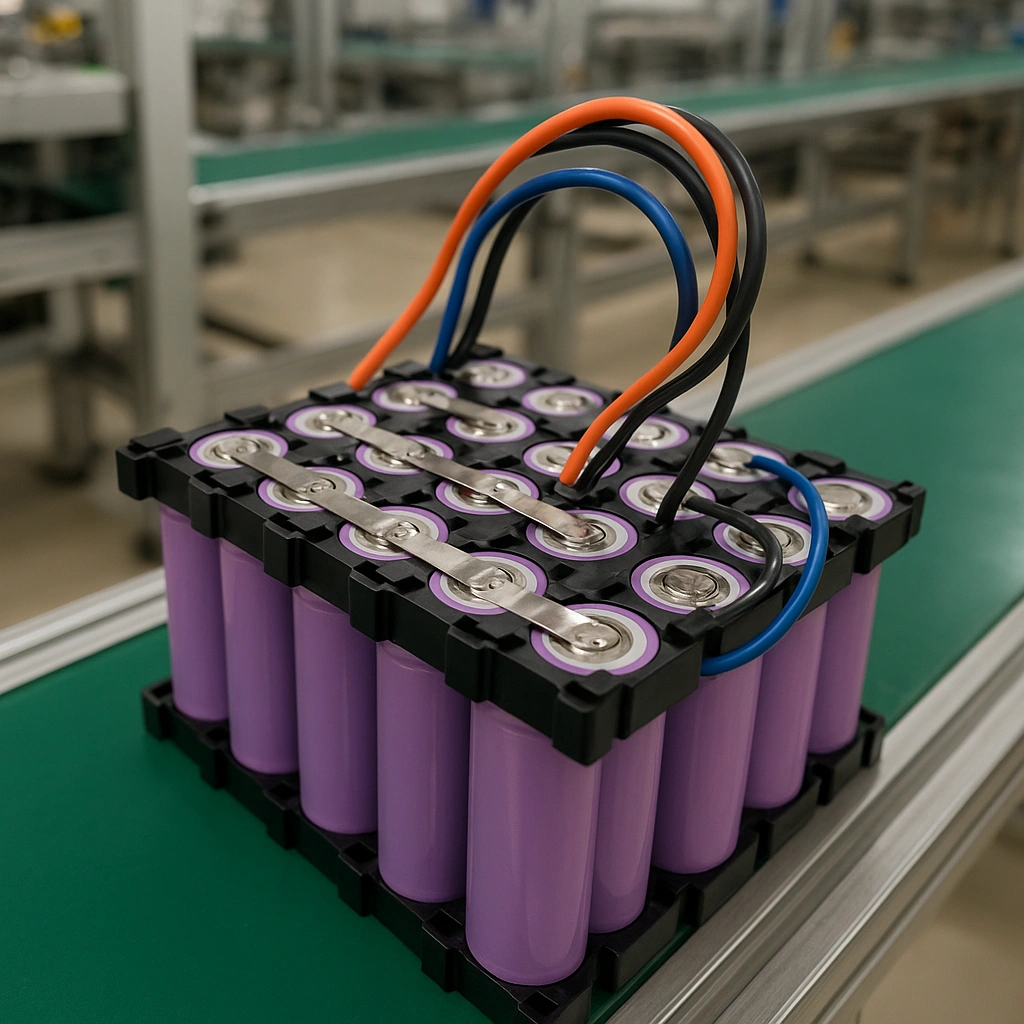What Is an 18650 Battery Pack? Features and Use Cases
Introduction
The 18650 battery pack is one of the most versatile lithium-ion energy solutions used in today’s technology landscape. Known for its high energy density, long cycle life, and modularity, it powers everything from medical devices and robotics to backup power stations.
In this guide, you’ll learn what an 18650 battery pack is, how it’s configured, what benefits it offers, and how to choose the right setup for your project.
What Is an 18650 Battery Pack?
An 18650 cell is a cylindrical lithium-ion battery measuring 18mm in diameter and 65mm in height. Each cell typically delivers:
-
Nominal voltage: 3.6V–3.7V
-
Capacity: 2000mAh to 3500mAh
Multiple 18650 cells are assembled into a battery pack using series (S) and parallel (P) connections. For example:
-
3S2P = 3 cells in series × 2 in parallel
→ Output: ~11.1V and doubled capacity
This flexibility allows manufacturers to tailor voltage and capacity for specific application needs.
Types of 18650 Battery Pack Configurations
| Configuration | Output Voltage | Typical Application |
|---|---|---|
| 1S1P | 3.7V | Flashlights, small IoT devices |
| 3S2P | 11.1V | Drones, routers, portable tools |
| 4S3P | 14.8V | Medical monitors, POS machines |
| 7S4P and above | 24V+ | AGVs, backup power, e-bikes |
These modular formats enable seamless scalability based on power demands.
How Are 18650 Battery Packs Built?
Each well-designed li-ion 18650 battery pack includes:
-
Battery Configuration: Series-parallel layout for desired voltage/capacity
-
BMS (Battery Management System): Protects against overcharge, over-discharge, overcurrent, and overheating
-
Enclosure Options: PVC wrap, plastic casing, or aluminum shell depending on application
-
Connectors: XT60, Anderson, Molex, or customized terminals
-
Cell Balancing: Ensures uniform cell aging and maximized life
Advanced packs may also feature smart communication via UART, CAN, or SMBus.
Advantages of 18650 Battery Packs
-
High Energy Density: Ideal for compact spaces
-
Long Cycle Life: 500+ cycles under proper use
-
Modular Design: Easy voltage/capacity customization
-
Cost-Effective: Widely produced, competitive pricing
-
Flexible Integration: Compatible with robotics, tools, solar storage
Applications of 18650 Battery Packs
| Industry | Application Examples |
|---|---|
| Consumer Electronics | Portable fans, scanners, cameras |
| Industrial Automation | AGVs, IoT sensors, handheld tools |
| Medical Devices | Diagnostic monitors, infusion pumps |
| Energy Storage | Solar-powered backup, UPS |
| Robotics & UAV | Modular mobile systems, drones |
The adaptability of 18650 packs makes them a go-to battery for both portable and stationary devices.
How Long Do 18650 Battery Packs Last?
Battery life depends on factors like usage, charging habits, and cell quality:
| Factor | Impact on Lifespan |
|---|---|
| Charge/Discharge Cycles | 500–1000 typical |
| Depth of Discharge (DoD) | Shallow DoD = longer lifespan |
| Operating Temperature | 15°C–35°C recommended |
| Charging Rate | Avoid fast charging when possible |
| Cell Quality and BMS Design | Use of Grade A cells is critical |
Typical lifespan: 2–5 years under regular usage
Are 18650 Battery Packs Safe?
Yes—if properly manufactured and used. Safety depends on:
-
Using certified cells (UL1642, IEC62133)
-
Built-in BMS for overvoltage, current, and thermal protection
-
Avoiding exposure to water, fire, or physical damage
-
Quality welding and mechanical design
PKNERGY’s 18650 battery packs meet strict QC and global safety standards for industrial and medical use.
FAQ
Q: Can I customize the voltage and capacity of my 18650 battery pack?
A: Yes, PKNERGY offers full OEM/ODM services for custom configurations including voltage, size, connector type, and smart communication.
Q: What’s the difference between 18650 and 21700 battery packs?
A: 21700 cells are larger with higher capacity per cell, but 18650 remains more widely available and cost-effective.
Q: Are 18650 battery packs recyclable?
A: Yes. Components like lithium, copper, and nickel can be recovered. Recycling also supports sustainability goals.
Conclusion
The 18650 battery pack remains a reliable, scalable, and affordable lithium-ion power solution trusted across industries. Whether you’re developing smart tools, portable electronics, or industrial-grade energy systems, 18650 packs offer flexibility without compromising safety or performance.




